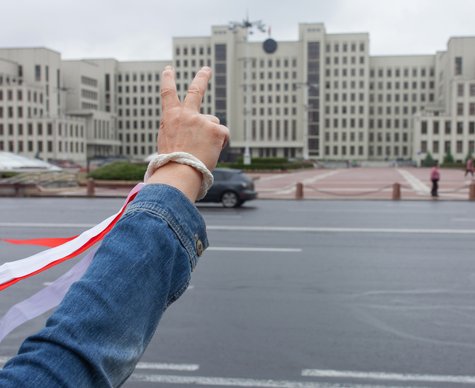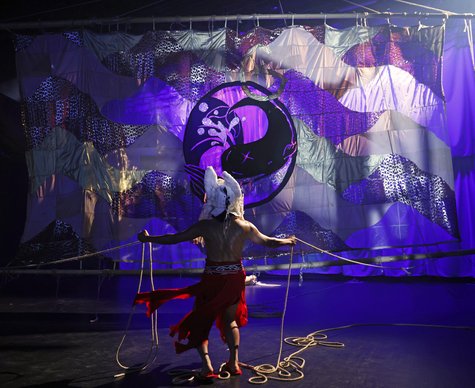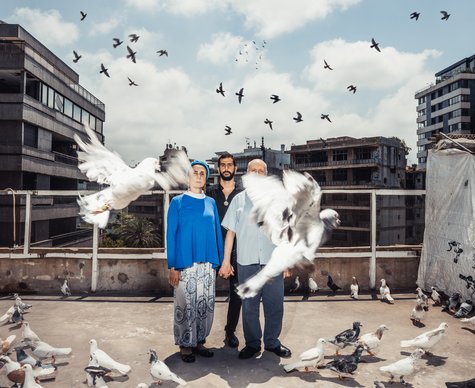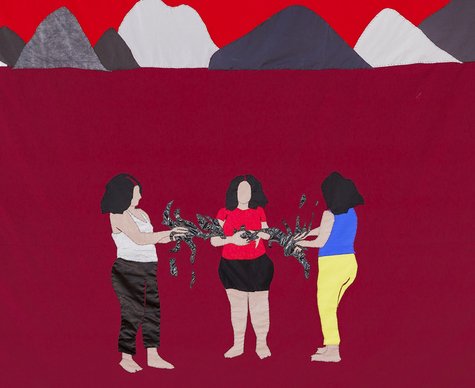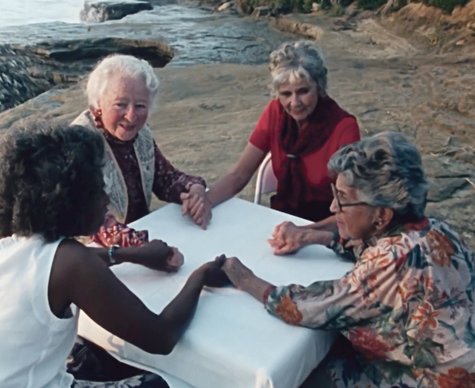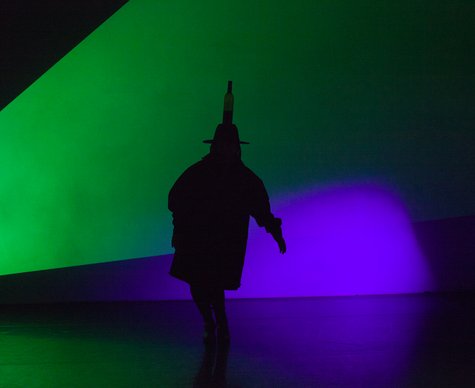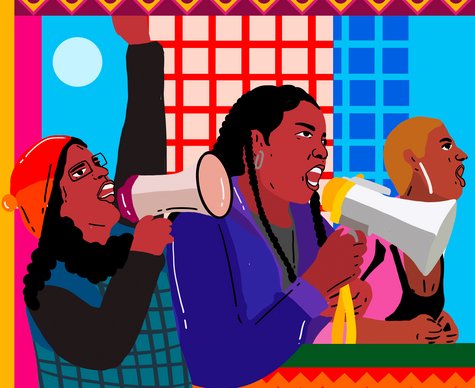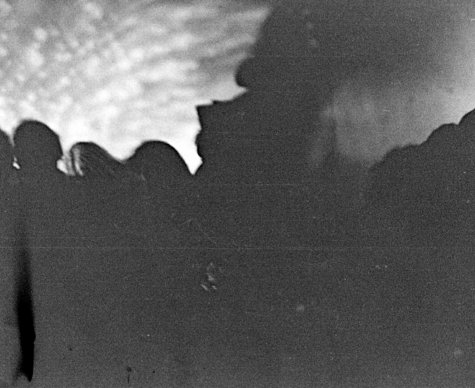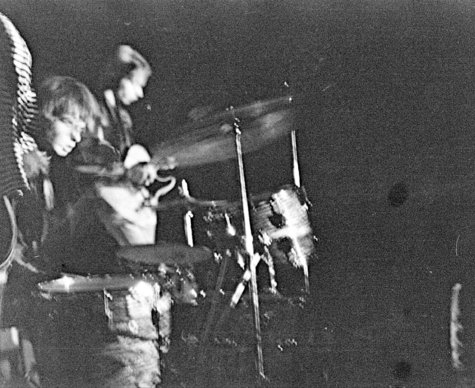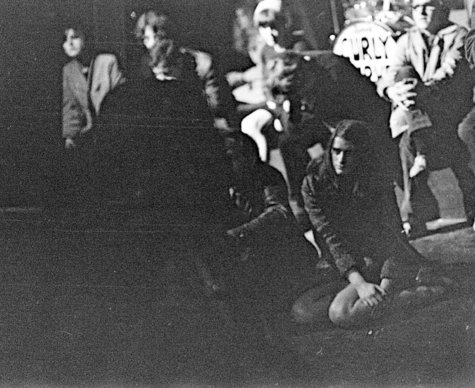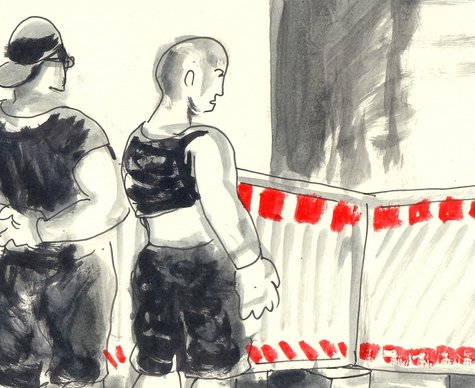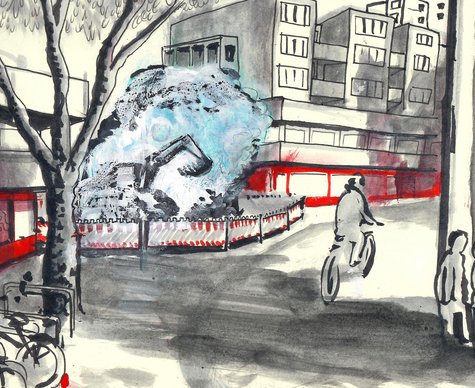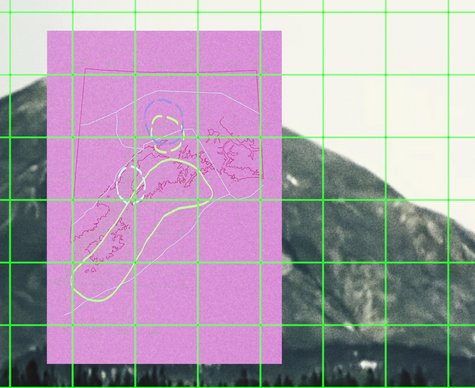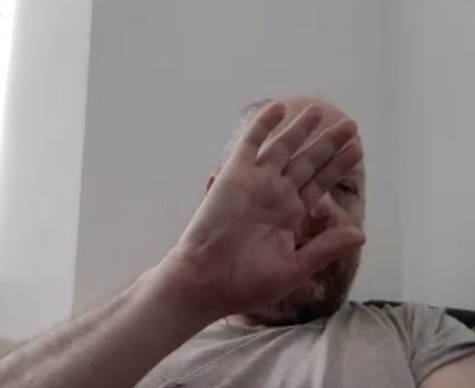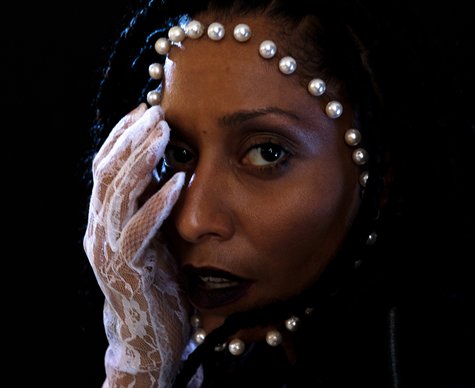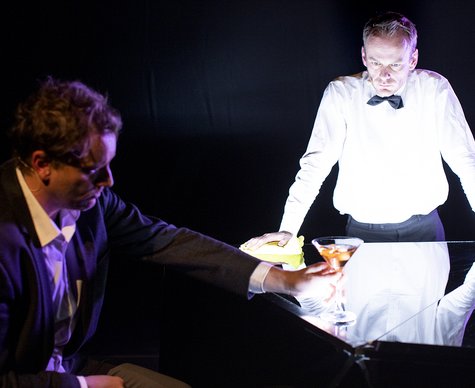Hidden Music
Raze de Soare / T**lin / Sohrab
Part of the festival “The Aesthetics of Resistance – Peter Weiss 100”
- Music
Even if maligned into secrecy or completely banned – music has always found ways to be heard. Three evenings in WAU focus on once forbidden, or in some cases still forbidden forms of musical expression from Romania, Turkey and Iran.
RAZE DE SOARE
28.9., 22:00 / WAU
Modern Manele is a blend of Oriental-Romanian folk and contemporary pop music. The musical style plays with traditional melodies, underscored by cheap keyboard synthesizers. Until 1989 the Romanian state only supported traditional folk music.
In the 1980s, in reaction to this cultural politics, a new pop music emerged in the Banat region of western Romania, a region in which state control from Bucharest was less present. What’s more, the proximity to Hungary and Yugoslavia meant that foreign television and radio programmes could be received. Despite the state controlled distribution of goods, musicians managed to procure modern musical instruments of Western or Japanese production: electric guitars, electric basses, percussion instruments, synthesizers and keyboards. This gave rise to a new Romanian pop music, also called “Proto-Manele”, which spread clandestinely throughout the country by means of self-recorded and copied cassettes.
The official state position on this newly interpreted Sinti and Roma music was to classify it as “dirty” and “corrupt” and to forbid it, it was excluded from the radio and state festivals. A certain portion of Romanian society still rejects this music style.
“Raze de Soare” play “Proto-Manele”, LIVE at WAU. Their EP “Albatros”, released on the Romanian label "Future Nuggets", is in homage to the most well-known “Proto-Manele” band by the same name.
SOHRAB
1.10., 22:00 / WAU
In Iran every form of music that is lived and practiced in contrast to the moral interpretation of the regime is sanctioned. Musicians are arrested and put in prison on a regular basis. State censorship has an effect on all parts of daily life. Other than traditional Iranian music, hardly any music can be heard in the internet or on radio. In Iran 70% of the population is under 30 years old. Illegal music data and banned CDs are usually smuggled in from abroad and then distributed. Sohrab’s music also can’t be played in Iran. His first album came out on the English label “Touch”, and his first public appearance took place in the Berlin club Berghain. Sohrab did not return to Iran, he lives and works in Berlin. At WAU, alongside music banned in Iran in the ‘60s and ‘70s, he will also play current Iranian productions.
T**LIN
8.10., 22:00 / WAU
T**lin is a queer and human rights activist as well as the manager of “Südblock” at Kottbusser Tor. She is known for her DJ sets with Oriental sounds. At WAU T**lin will play a set with a special focus on Kurdish songs banned in Turkey. For many years, due to the ban on the Kurdish language, Kurdish music led a shadowy existence.
https://soundcloud.com/ahu_sohrab
Dates
Location
WAU
Hallesches Ufer 34, 10963 BerlinIn order to resume restaurant service at WAU in the future, renovation work will take place on the first floor of HAU2 from January until the end of the 2024/25 season. Instead, the bars in HAU1, HAU2 and HAU3 will be open one hour before and after the performances.
























